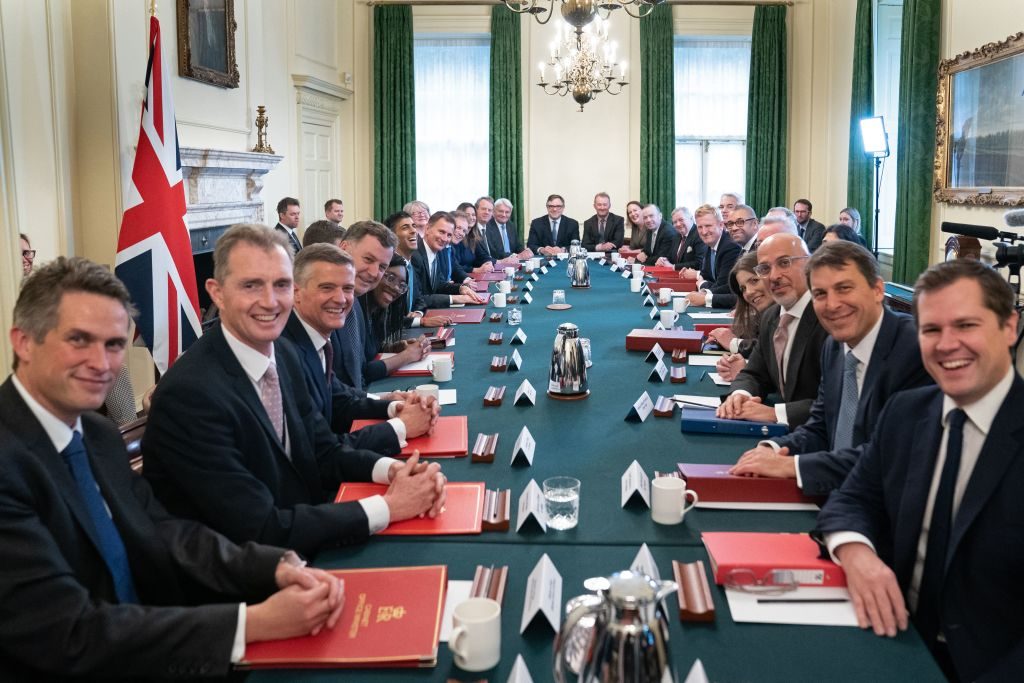It’s fashionable these days, in policy circles at least, to talk about Britain’s lack of “state capacity”. Whether it’s building railways, generating adequate energy, locking up criminals, or digging holes in the ground to store water, the modern UK appears incapable of doing things.
But we may have to concede that the truth, as revealed by the mind-boggling story of the Afghan resettlement scheme, is actually worse than that. For this story shows that the state can relocate tens of thousands of people, at a cost (to date) of £7 billion, and keep it all a secret for years. The chain of events could hardly have been written better as a parable of what’s wrong with Britain. At every stage, it casts a cold light on a perennial problem.
First, there’s the unnamed official who contrives to leak the private details of tens of thousands of potentially vulnerable people in Afghanistan. Of course, they are neither named nor fired, and even now are being protected by Defence Secretary John Healey, who refuses to launch a “witch hunt”.
Next, there’s the decision that all of these people are in such peril that they need to be resettled in the UK. Why? Because one of the recipients, an Afghan, threatened to publish it. According to the Daily Mail, he and seven or more relatives are now in the UK.
Not only is this, if true, abject surrender to what is essentially blackmail, but it also seems to be an absurd overestimation of the danger these people were in. Since the Taliban took power, the United Nations has recorded 218 extrajudicial killings; as one online commentator pointed out: “Someone in the British state thought it credible that the Taliban would see this list and increase their output 11,000%.”
This is all too common state failure, sadly. What’s truly remarkable about this, though, is the way both the Conservatives and Labour thought this programme so important that they contrived to completely short-circuit Britain’s democratic structures.
First, the Tories took out a contra mundum super-injunction — an injunction against, literally, the whole world – to cover up the initial airlift. Then, they and subsequently Labour extended it, partly to come up with an “agreed narrative” on why the Afghans were here — i.e. to lie to the public — and partly out of political considerations.
The mind boggles at the potential impact. First, Rishi Sunak’s government suppressed reporting on this decision ahead of a general election. Next, Keir Starmer’s government suppressed reporting on a programme which cost billions of pounds while Rachel Reeves conjured “fiscal black holes” to justify spending cuts and tax rises. The injunction may well have facilitated a contempt of Parliament — in other words, lying to the House.
At this point, the note at the end of the Daily Telegraph story (“Last week the Government decided that the threat to Afghan lives was ‘less than previously thought’, and that the super-injunction might actually have made the situation worse”) hardly registers. It’s so obvious a denouement to this epic saga of national incompetence that it would be a surprise if it were otherwise. Perhaps that argument about state capacity is correct after all.
But the real, looming crisis now is even more fundamental: stage legitimacy. It is clear that none of the politicians involved in this decision had sufficient confidence in their convictions to be honest with either the House of Commons or the voters. Nor do they think that the official who originally leaked the document, who in their eyes forced the expenditure of £7 billion and counting in public money, should face any consequences. Such an order cannot — and will not — survive.











Join the discussion
Join like minded readers that support our journalism by becoming a paid subscriber
To join the discussion in the comments, become a paid subscriber.
Join like minded readers that support our journalism, read unlimited articles and enjoy other subscriber-only benefits.
Subscribe